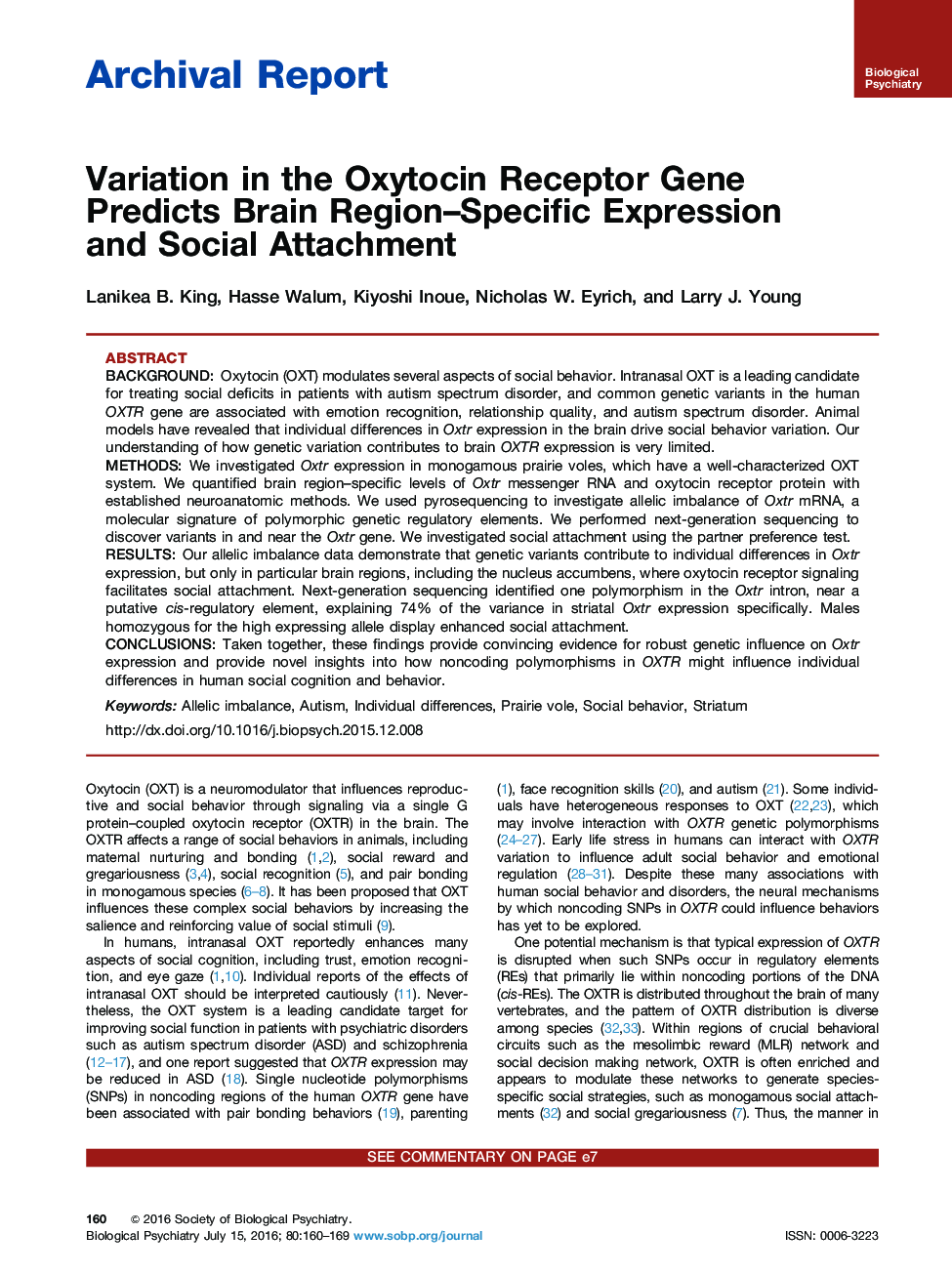| کد مقاله | کد نشریه | سال انتشار | مقاله انگلیسی | نسخه تمام متن |
|---|---|---|---|---|
| 6226411 | 1276380 | 2016 | 10 صفحه PDF | دانلود رایگان |
BackgroundOxytocin (OXT) modulates several aspects of social behavior. Intranasal OXT is a leading candidate for treating social deficits in patients with autism spectrum disorder, and common genetic variants in the human OXTR gene are associated with emotion recognition, relationship quality, and autism spectrum disorder. Animal models have revealed that individual differences in Oxtr expression in the brain drive social behavior variation. Our understanding of how genetic variation contributes to brain OXTR expression is very limited.MethodsWe investigated Oxtr expression in monogamous prairie voles, which have a well-characterized OXT system. We quantified brain region-specific levels of Oxtr messenger RNA and oxytocin receptor protein with established neuroanatomic methods. We used pyrosequencing to investigate allelic imbalance of Oxtr mRNA, a molecular signature of polymorphic genetic regulatory elements. We performed next-generation sequencing to discover variants in and near the Oxtr gene. We investigated social attachment using the partner preference test.ResultsOur allelic imbalance data demonstrate that genetic variants contribute to individual differences in Oxtr expression, but only in particular brain regions, including the nucleus accumbens, where oxytocin receptor signaling facilitates social attachment. Next-generation sequencing identified one polymorphism in the Oxtr intron, near a putative cis-regulatory element, explaining 74% of the variance in striatal Oxtr expression specifically. Males homozygous for the high expressing allele display enhanced social attachment.ConclusionsTaken together, these findings provide convincing evidence for robust genetic influence on Oxtr expression and provide novel insights into how noncoding polymorphisms in OXTR might influence individual differences in human social cognition and behavior.
Journal: Biological Psychiatry - Volume 80, Issue 2, 15 July 2016, Pages 160-169
